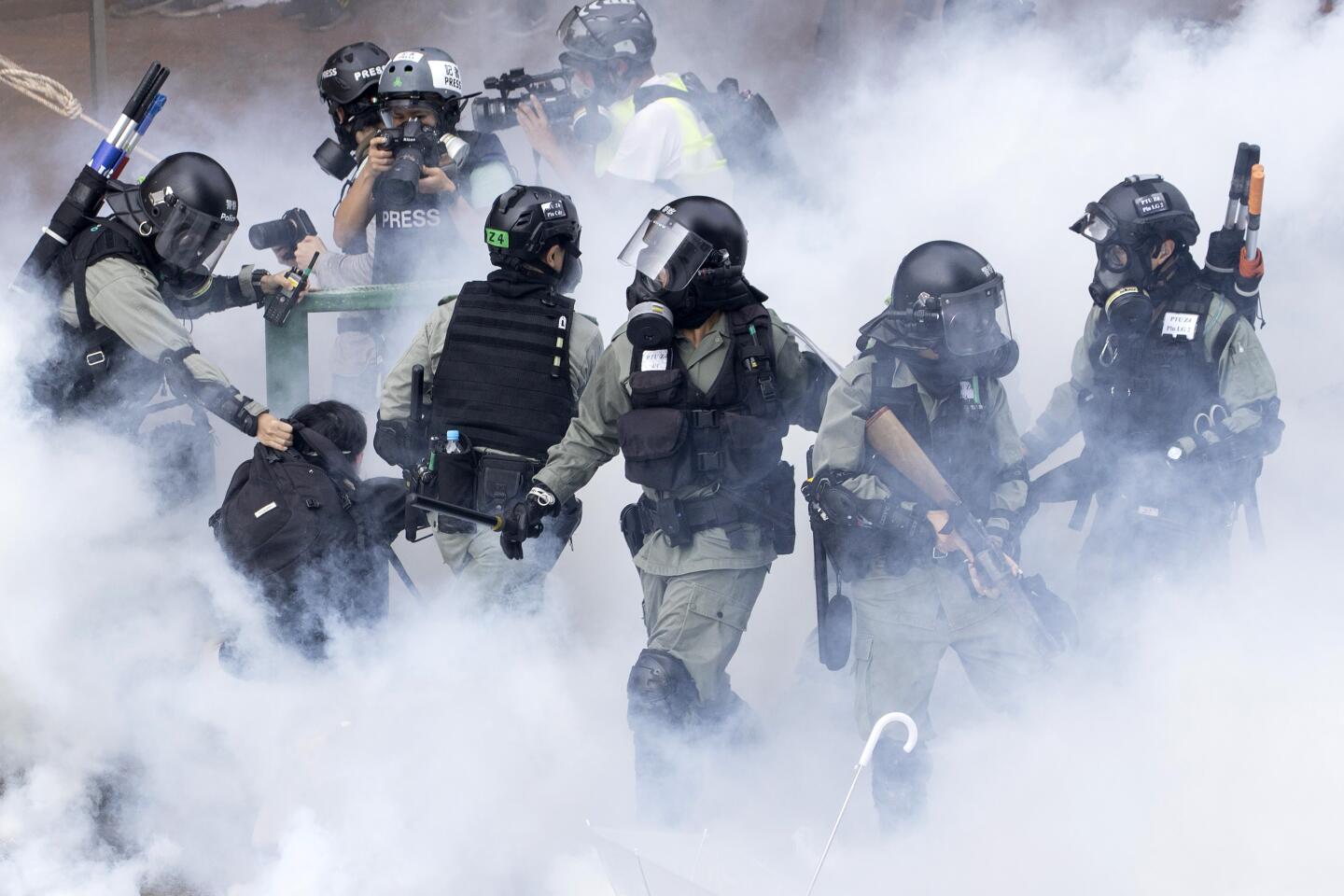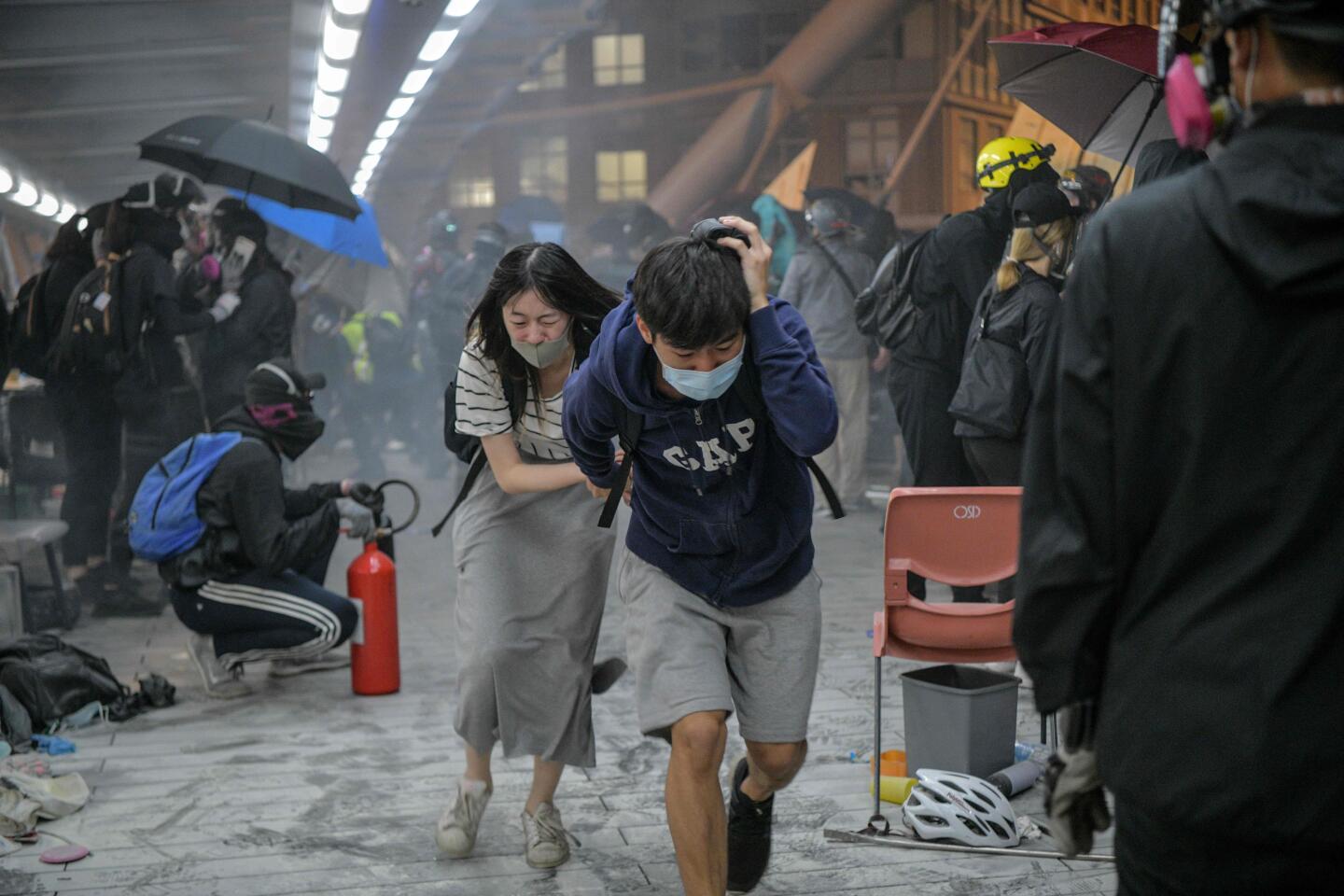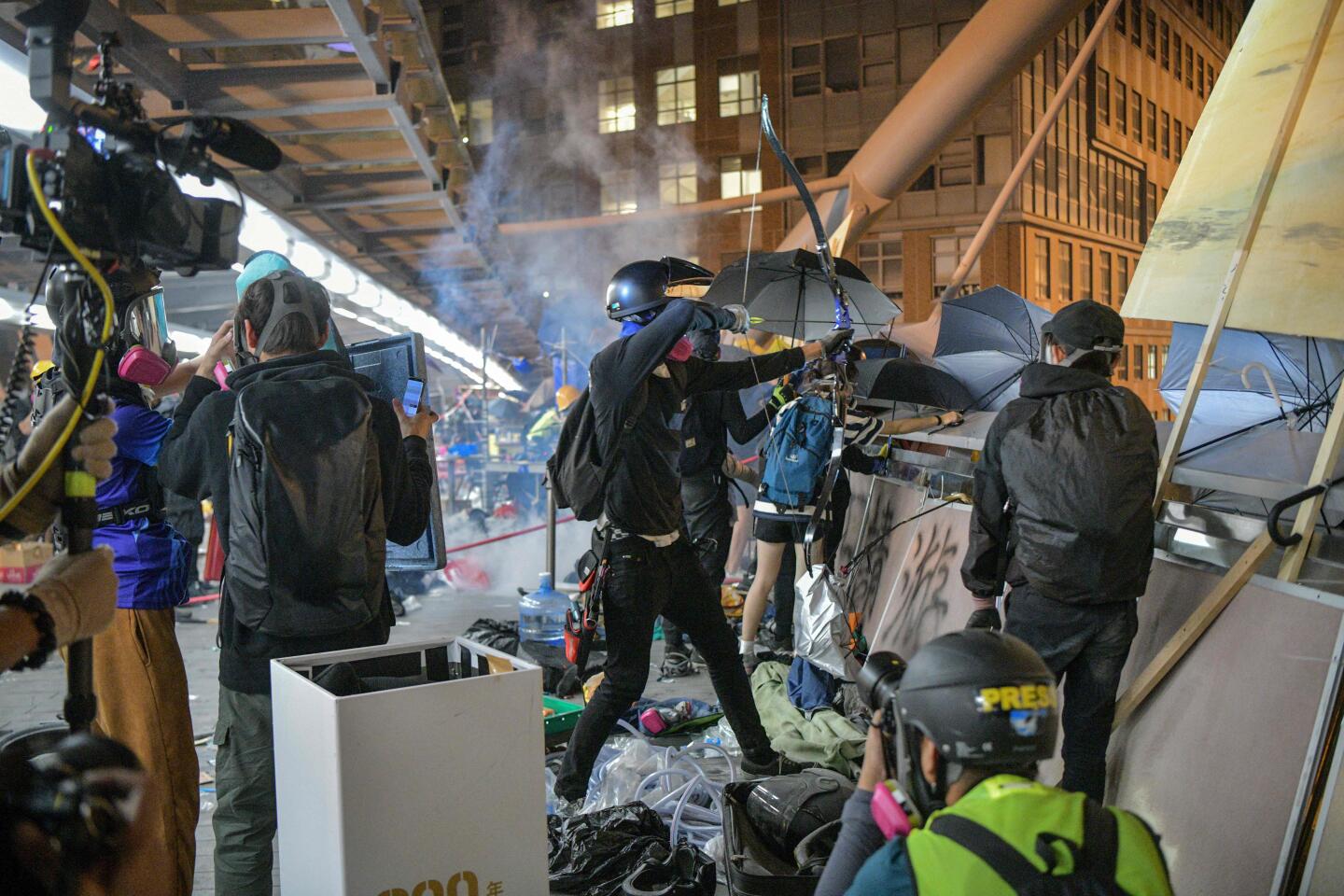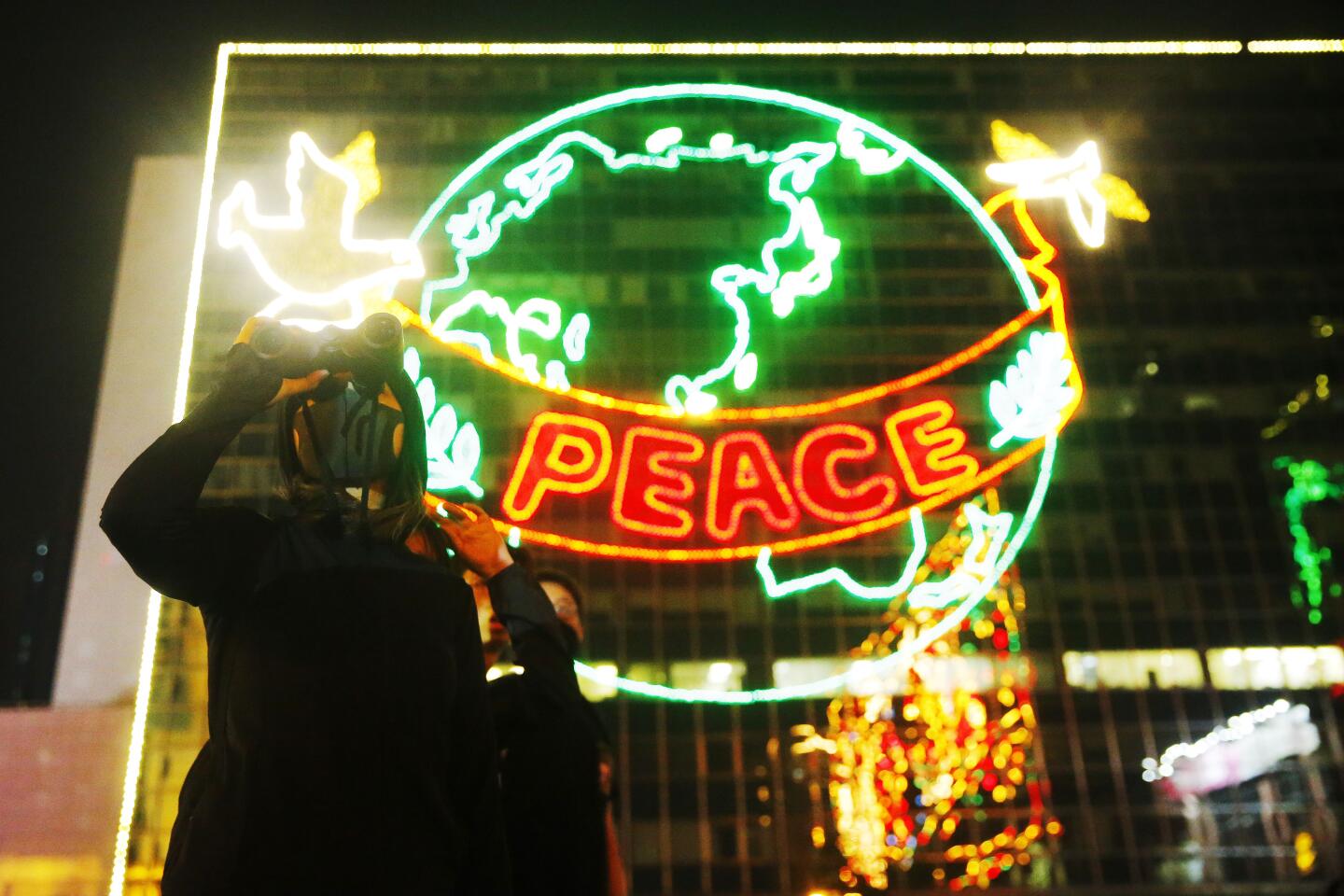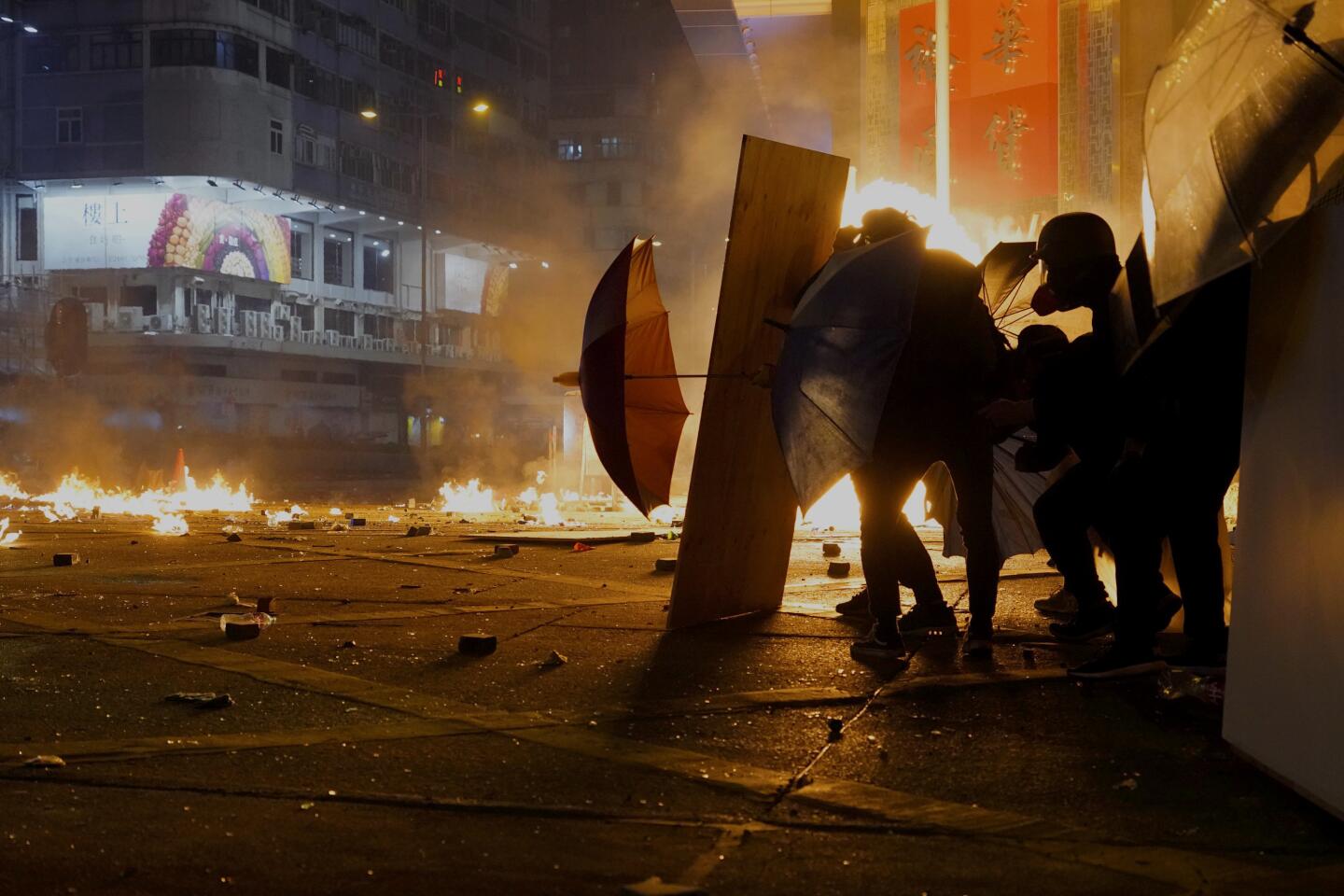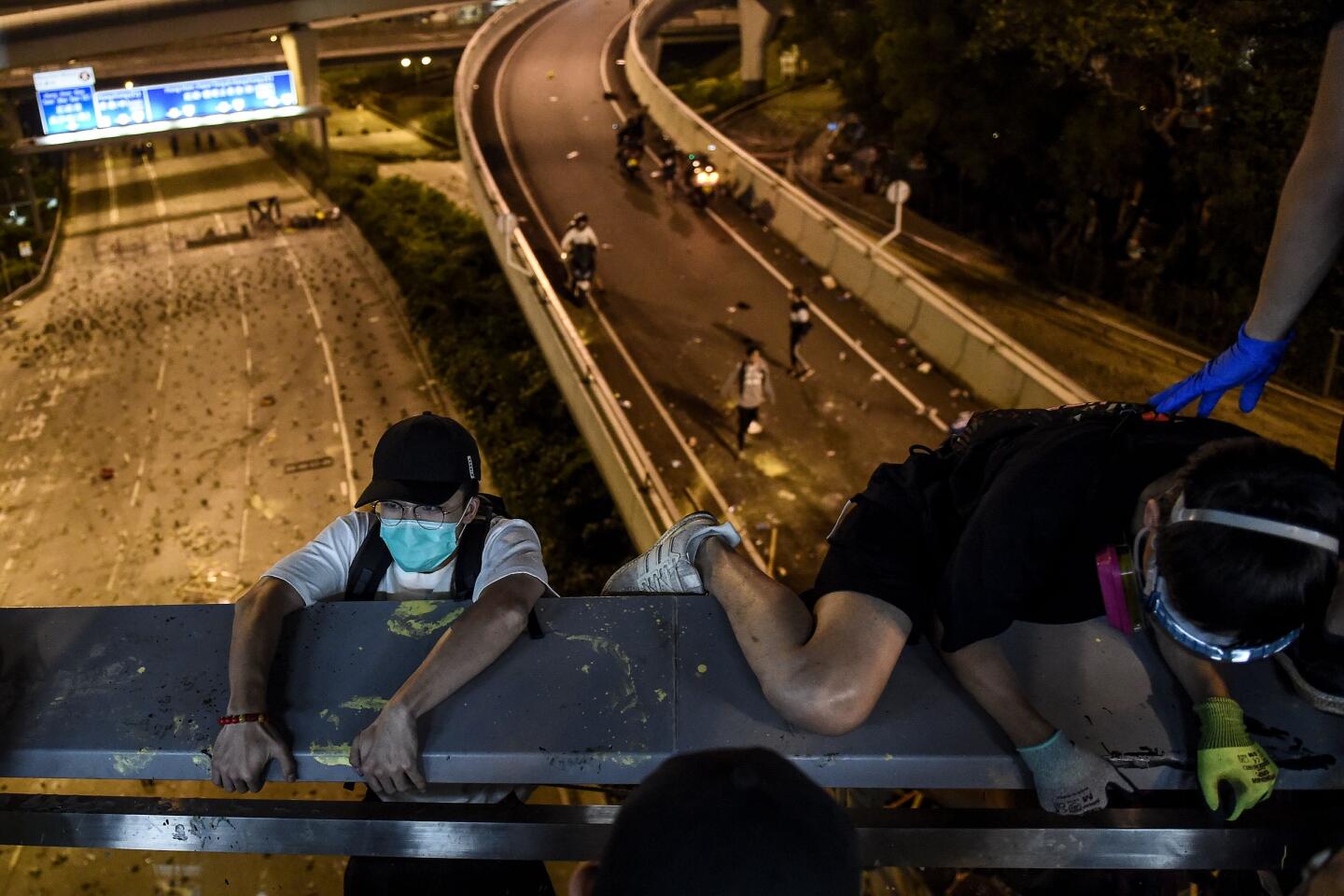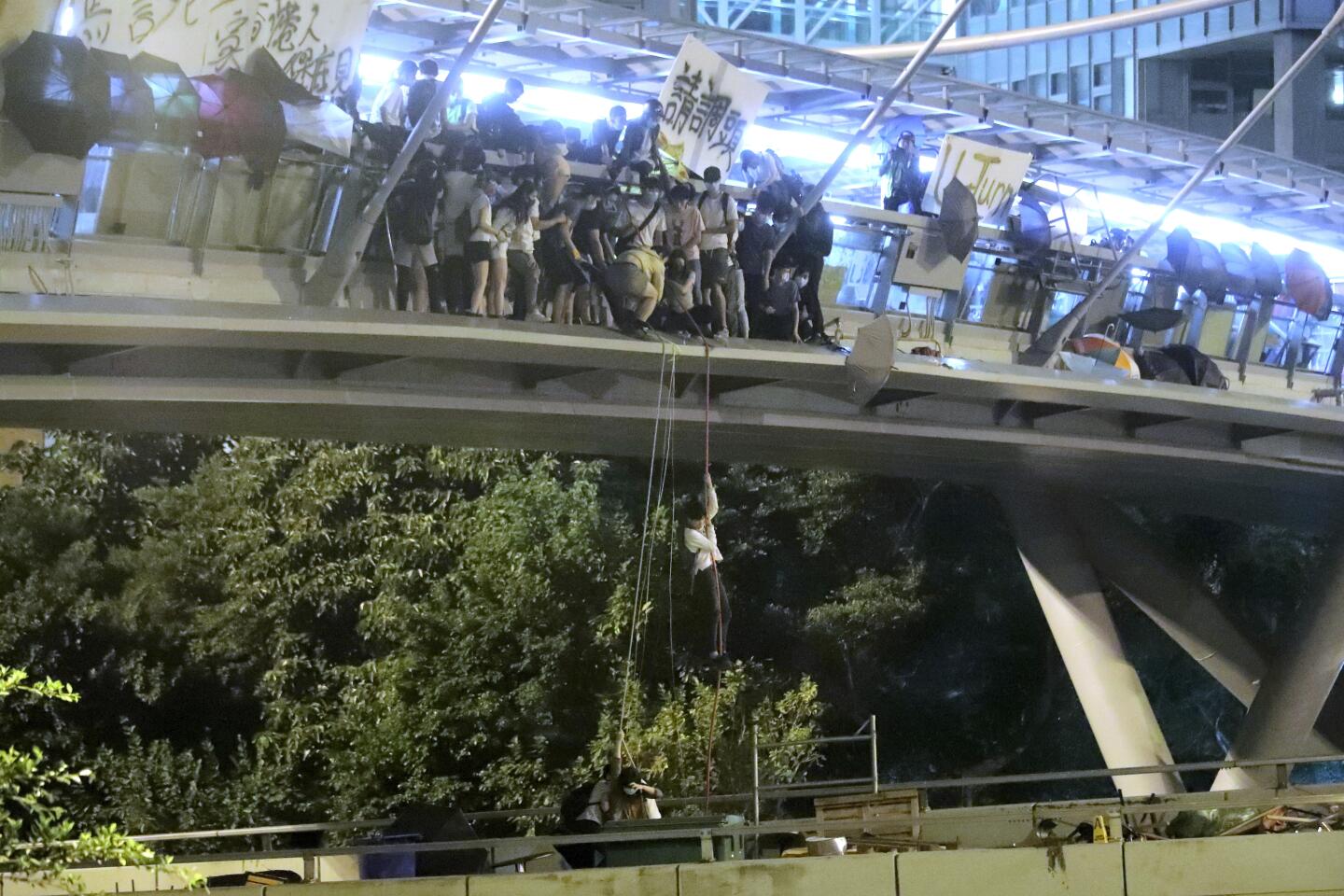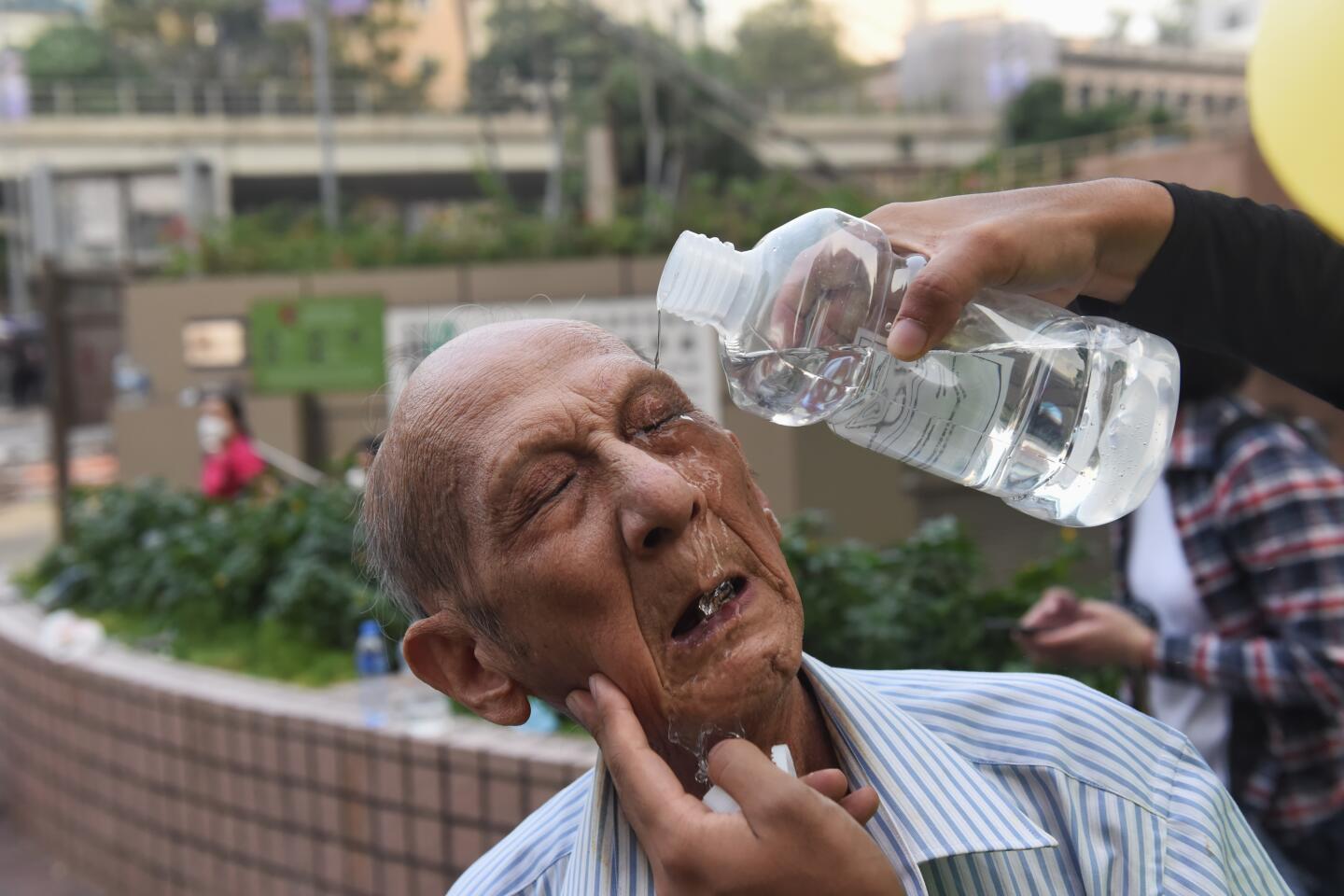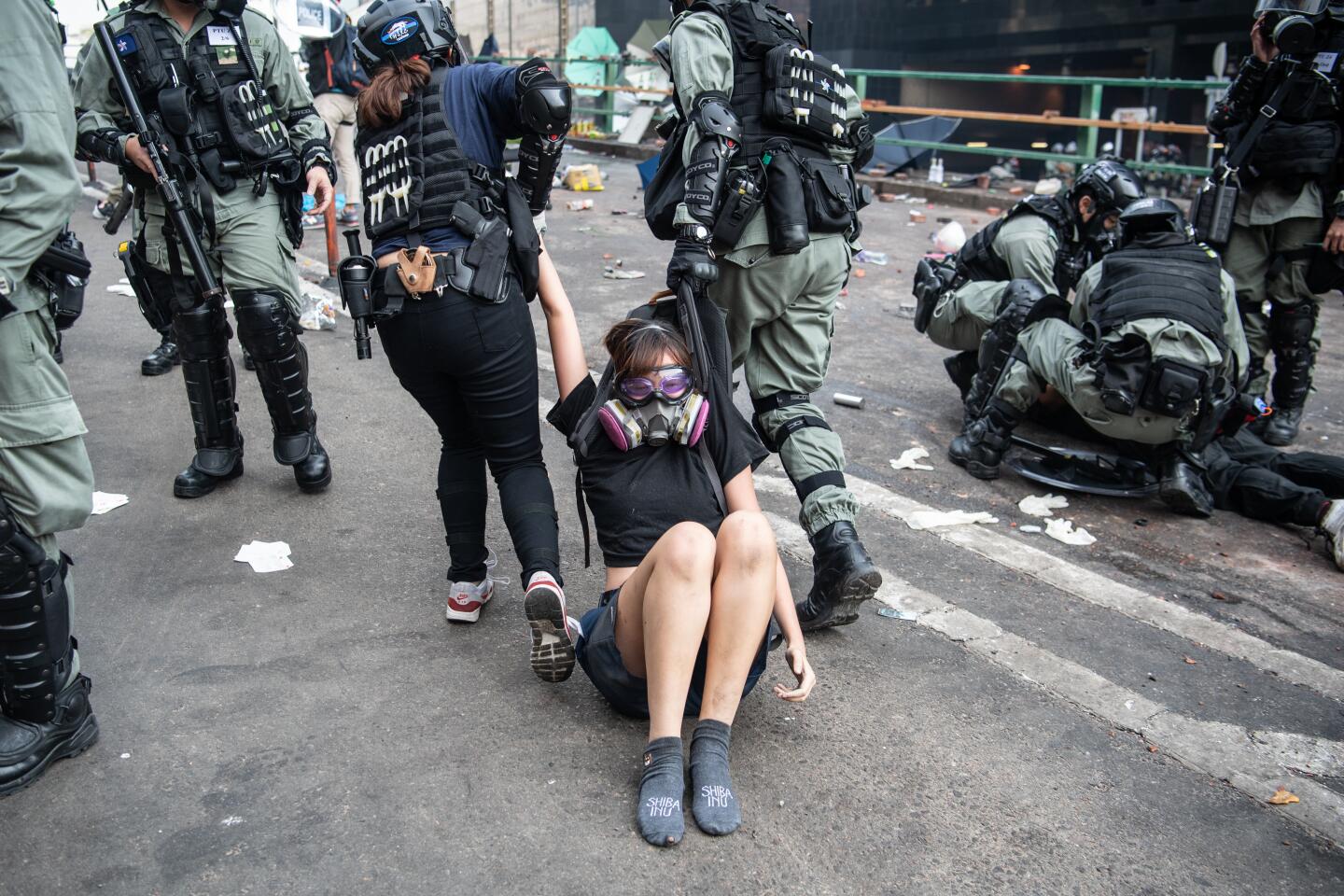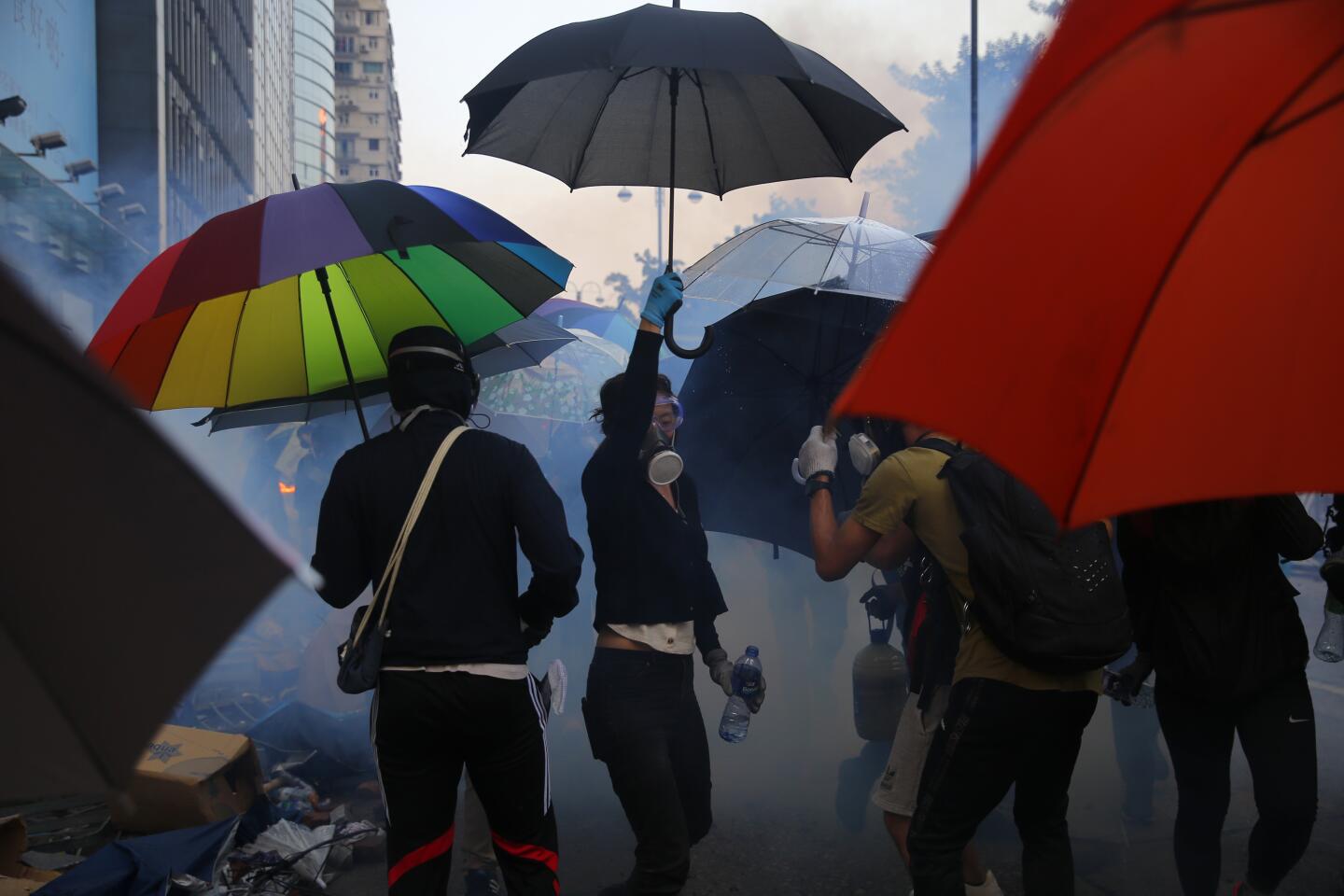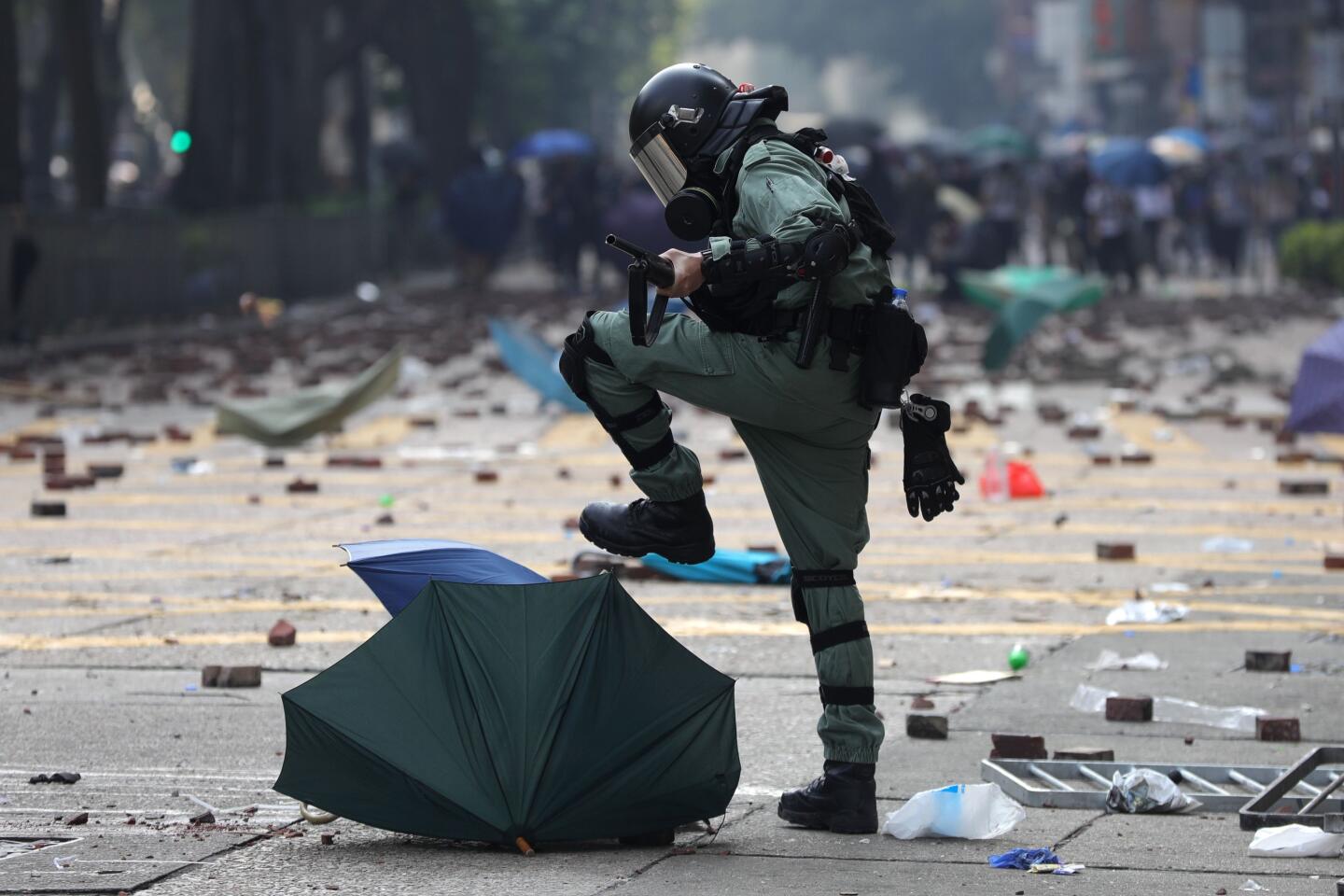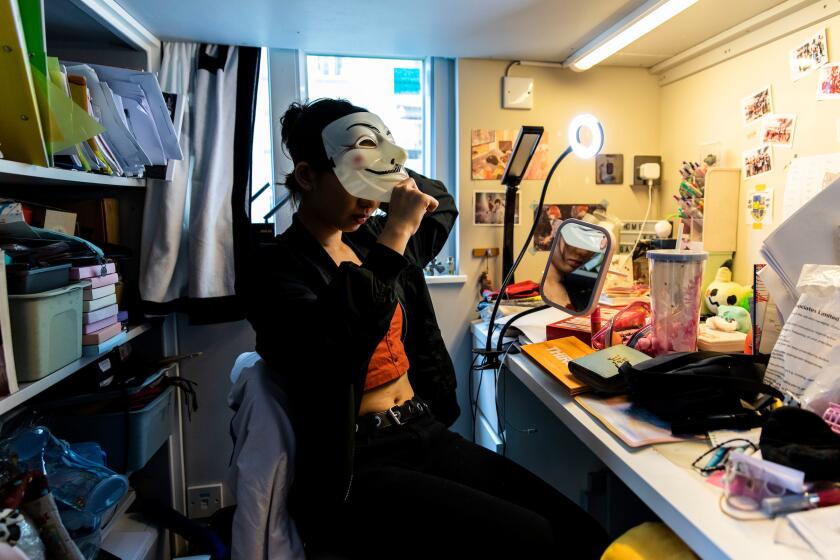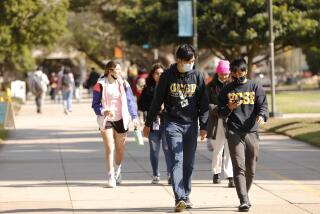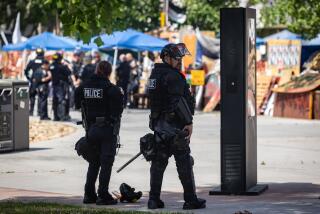Hong Kong police tighten siege of Polytechnic University as protests rage across city
- Share via
HONG KONG — Police tightened their siege of a university campus where hundreds of protesters remained trapped overnight Tuesday in the latest dramatic episode in months of protests against growing Chinese control over the semiautonomous city.
In yet another escalation for the movement, protests raged across other parts of the city, fueled by palpable public anger over the police blockade of Hong Kong Polytechnic University and the desire to help the students stuck inside.
Now in its fifth month, the Hong Kong protest movement has steadily intensified as local and Beijing authorities harden their positions and refuse to make concessions. Universities have become the latest battleground for the protesters, who used gasoline bombs and bows-and-arrows in their fight to keep riot police backed by armored cars and water cannons off of two campuses in the last week.
China, which took control of the former British colony in 1997 promising to let it retain its autonomy, flexed its muscles, sending troops outside their barracks over the weekend in a cleanup operation.
China’s ambassador to Britain accused the U.K. and the U.S. of meddling in the country’s internal affairs and warned that the Chinese government “will not sit on our hands” if the situation in Hong Kong “becomes uncontrollable.”
“These rioters, they are also criminals. They have to face the consequences of their acts,” said Cheuk Hau-yip, the commander of West Kowloon district, where Polytechnic University is located.
“Other than coming out to surrender, I don’t see that there’s any viable option for them,” he said, adding that police have the ability and resolve to end the standoff.
Authorities, meanwhile, were dealt a setback Monday when Hong Kong’s high court struck down a contentious ban on wearing face masks in public imposed last month, ruling it unconstitutional.
The battle for control of Hong Kong Polytechnic University began last week as demonstrators for days fortified the campus to keep the police out. On Monday, cornered by security forces determined to arrest them, they desperately tried to get out but faced a cordon of officers armed with tear gas and water cannons.
Senior government officials said they were trying to de-escalate the situation and urged the protesters to leave peacefully and cooperate with police — advice that seemed certain to lead to arrests and therefore strengthened the protesters’ resolve to resist.
Before dawn on Tuesday, police allowed a group of minors to leave the campus after their high school principals secured a promise that they could go home safely. Police took down the teenagers’ details and they could still face prosecution later, local broadcaster RTHK reported.
The teens, some wearing masks to protect against tear gas, were seen hugging their principal as they left the cordoned-off university campus.
A day earlier, security forces repelled one escape attempt with tear gas, driving hundreds of protesters back onto the campus. Later, huge crowds of supporters advanced on foot toward the police from outside the cordon to try to disrupt the police operation.
Some protesters descended by ropes from a footbridge to a road below, where they were met by motorbike riders trying to help them flee as police fired tear gas.
All day Monday, multiple protests disrupted traffic in the Asian financial center, where schools remained closed because of safety concerns stemming from the demonstrations, which began in June but have become increasingly violent in recent weeks.
Riot officers broke into one university entrance before dawn Monday as fires raged inside and outside, but they didn’t appear to get very far. Fiery explosions could be seen as protesters responded with gasoline bombs.
Police, who have warned that everyone in the area could be charged with rioting, said 154 arrests were made over the weekend. A total of 4,491 arrests have reportedly been made since the protests began in June.
Local council elections scheduled for Sunday were at risk of being delayed because of the unrest, said Patrick Nip, Hong Kong’s secretary for constitutional affairs.
“The situation in the past weekend has obviously reduced the chance of holding the election as scheduled,” Nip said, adding that the government “won’t take this step unless absolutely necessary.”
The months-long protests started peacefully in early June, sparked by proposed legislation that would have allowed criminal suspects to be extradited to the mainland. But by the time the bill was withdrawn, the protests had hardened and broadened into a resistance movement against the territory’s government and Beijing.
Activists see the extradition bill as an example of Hong Kong’s eroding autonomy under Beijing’s rule since the 1997 handover from colonial power Britain.
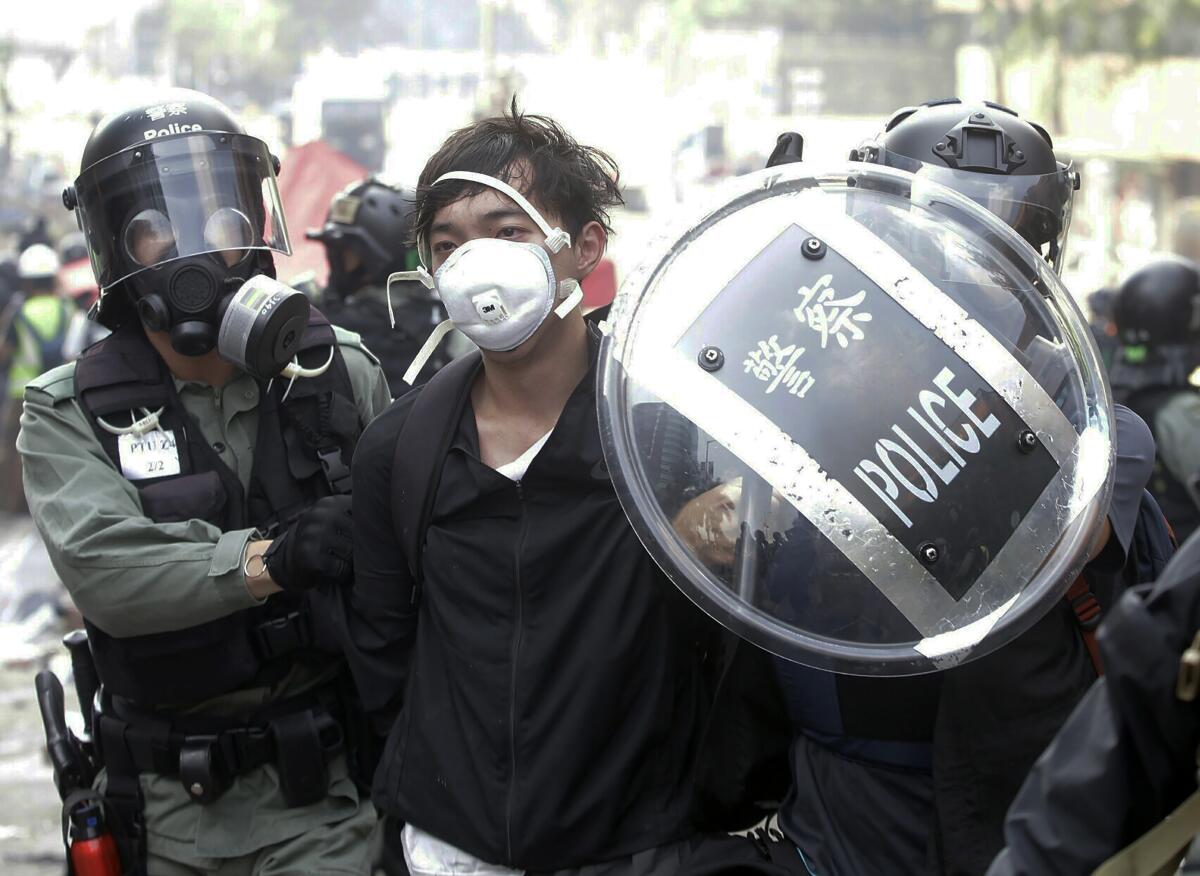
Months of protest have driven many Hong Kongers to consider moving abroad and rekindled memories of the 1990s, when hundreds of thousands fled out of fear of communist rule.
More to Read
Sign up for Essential California
The most important California stories and recommendations in your inbox every morning.
You may occasionally receive promotional content from the Los Angeles Times.
